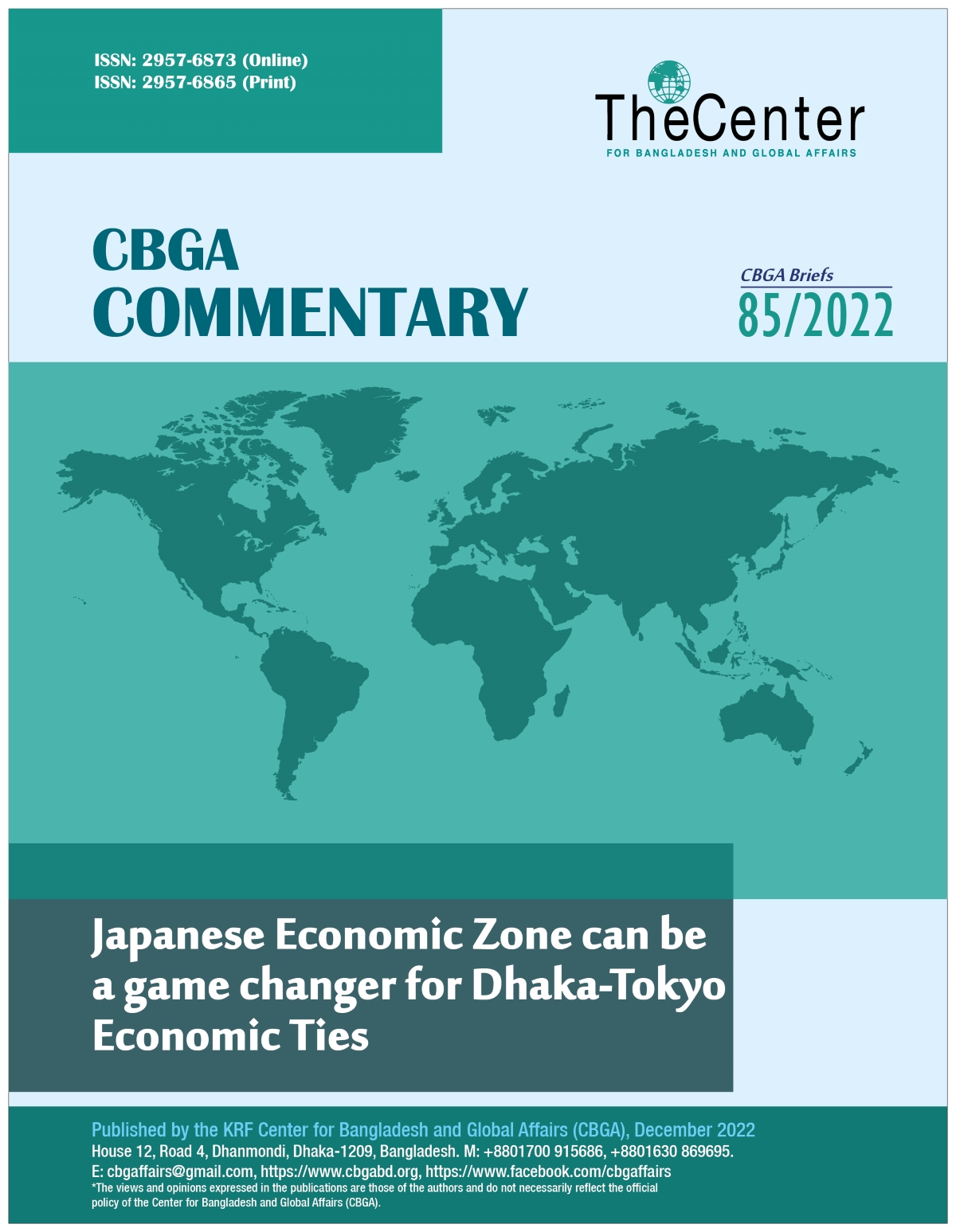
Though Japanese investment in Bangladesh is a recent phenomenon, during his 1973 Japan visit, Bangabandhu Sheikh Mujibur Rahman sought for Japanese investment in Bangladesh. For instance, on 19 October 1973, at the Dinner given by his honour by the Federation of Economic Organisations, the Japan Foreign Trade Council and the Japan Chamber of Commerce and Industry in Tokyo, Bangabandhu emphasized that ‘My government welcomes and attaches great importance to joint venture projects that provide us with opportunities for the development of new skills, help promote our exports, create large-scale employment opportunities and above all bring about a technological transformation of our economy’. However, except for Japanese aid and other forms of cooperation, Japanese investment in Bangladesh began recently.
In fact, major strides are evident to attract Japanese investments in Bangladesh under the Sheikh Hasina regime (2009-present), which can create employment opportunities for millions. A former Japanese Ambassador to Bangladesh, Hiroyasu Izumi noted that ‘Since the year 2008, the investment from Japan to Bangladesh has been expanding and the trend is getting stronger, especially after 2011’ (UNB News, April 16, 2019). One can add that during her 2010 Japan visit, Sheikh Hasina sought Japanese investments. Consequently, as of April 2021, some 321 Japanese companies were operational in Bangladesh. And as of September 2020, cumulative direct investment from Japan reached US$390.18 million. A number of Japanese private sectors invested in the ready-made-garments sector in Bangladesh.
The number of Japanese companies doing business in Bangladesh increased significantly. For instance, the Japan’s Diplomatic Bluebook 2021 notes that the number of Japanese affiliated companies developing business in Bangladesh has increased from 61 in 2005 to 315 in 2020. To attract Japanese investments, Bangladesh was developing a special economic zone at Araihazar, Narayanganj for Japanese investors which will be formally inaugurated on December 6, which is expected to be a game changer in attracting Japanese and other country’s investment in Bangladesh. The operations of the Japanese economic zone at Araihazar in Narayanganj will open a new horizon in promoting Bangladesh’s trade and investment volume.
Singer, a renowned company, has already started to build their infrastructures at this zone, while an agreement has also been signed with German company Rudolf. About 30 Japanese companies and about a dozen of foreign companies are expected to invest in the special economic zone. This special economic zone would attract investments worth around US$1.5 billion alongside creating initial employment opportunities for more than one lakh people. In addition, this special economic zone can attract investment from regional and extra-regional economic powers which can create immense economic opportunities.
Japanese investments in Bangladesh need to be accelerated where this special economic zone can play a vital role. It is worthy to note that according to a survey conducted by Japan External Trade Organization (JETRO), 73.2 percent of the 57 companies interviewed said Bangladesh is their top priority for business expansion; 61 percent said the country has high growth potential (The Daily Star, April 1, 2019). The survey was conducted among 5,073 Japanese firms in 20 Asia and Oceania countries. And out of the 20 countries, Bangladesh came in the second spot in terms of profitability for Japanese companies due to low wages and low production costs.
At a press conference, titled ‘Current Trend of Japanese Companies in Bangladesh’, organized by the Japan Bangladesh Chamber of Commerce and Industry (JBCCI), it was found that the confidence of Japanese companies in doing business in Bangladesh has improved and thus 70 percent of Japanese firms want to expand their business (JBCCI, April 2, 2019). Japan External Trade Organization (JETRO) Country Representative D Arai noted at the press conference that ‘[a]bout 270 Japanese companies are operating their business in Bangladesh. Even after the Holey Artisan incident in 2016, no single Japanese company withdrew business from the country’. Arai also emphasized that ‘[g]arment sector wages of the workers in China are four times higher than Bangladesh, so Japan wants to shift its companies to other countries, including Bangladesh’ (JBCCI, April 2, 2019). Ito Naoki, the Japanese Ambassador to Bangladesh, contended that ‘As the pandemic started in China, Japanese companies needed to diversify. This will provide an opportunity for Bangladesh’ (The Japan Times, February 16, 2021).
In an interview with the Daily Star, Yasushi Sawada, managing director of Ajinomoto Bangladesh, reiterated that ‘Many Japanese companies are successfully doing business in Bangladesh, and I hope more will enter this investment destination in the future. Japanese companies are making an active contribution to Bangladesh’s economic development and generating employment’ (Jahid, May 7, 2021). Thus, there are huge prospects of Japanese investors in Bangladesh which needs to be utilized for a win-win situation.
Finally, it can be said that the inauguration of the Japanese special economic zone at Araihazar is the result of the economic diplomacy of Sheikh Hasina. And by implementing this economic diplomacy, Bangladesh can be an attractive destination other major investors in the region and beyond.
– Md. Shariful Islam PhD. is an Assistant Professor at the Department of International Relations at the University of Rajshahi. He is also an adjunct research fellow at The KRF Center for Bangladesh and Global Affairs (CBGA), Dhaka, Bangladesh.







